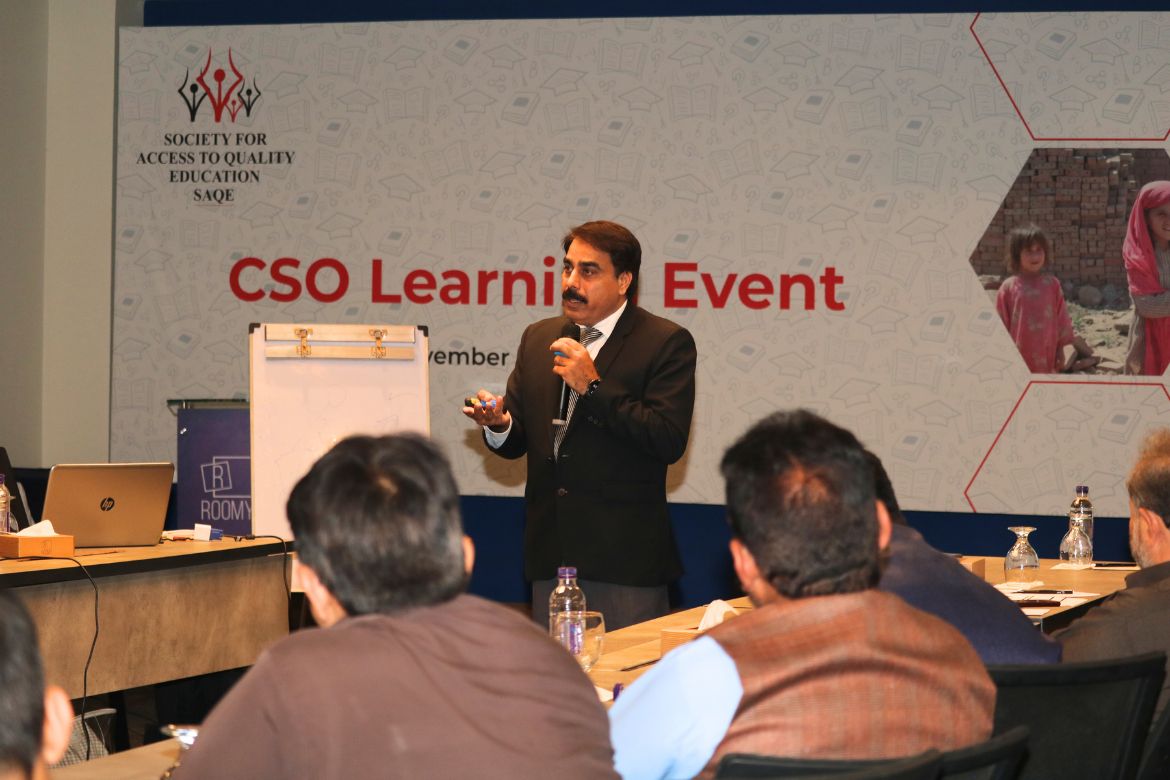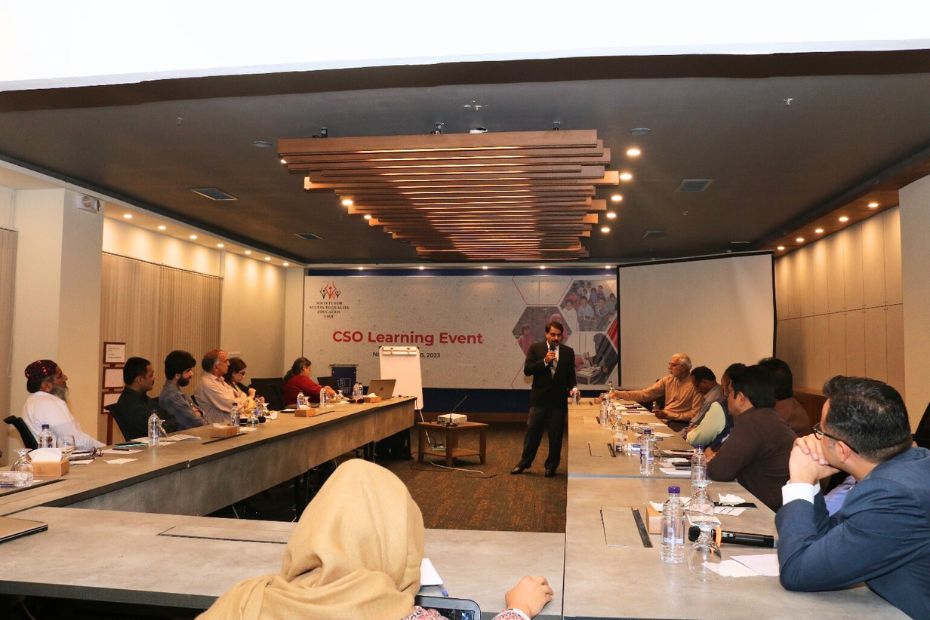
Empowering Education in Pakistan: Promoting Girls’ Inclusion
We’re excited to share how collaboration is driving impactful change in education advocacy, particularly in gender-responsive budgeting, in Pakistan. At Education Out Loud, we believe in the power of partnerships to amplify our collective impact to support the development and awareness on girls’ inclusion.
The approach highlights how collaborative efforts are reshaping education reforms today.
Collaboration isn’t just about working together; it’s about unlocking synergies that bring about meaningful change. By leveraging the strengths of each partner, collaborative initiatives are creating valuable outcomes that drive positive change in education reforms.
The Pakistan Coalition for Education (PCE) and the Institute of Social and Policy Sciences (I-SAPS) are at the forefront of collaborative efforts. Together, they’re engaging local stakeholders, orienting them towards understanding and advocating for education sector reforms and gender-responsive budgeting.
Unlocking Synergies for Change in Education Inclusion

This collaboration includes orientation of grassroots organizations on education advocacy, budgeting process and evidence generation that resulted in the effective participation of different stakeholders at the grassroots level.
In this context, a capacity-building training called ‘Social Accountability and Policy Engagement in the Education Sector for Civil Society Organizations (CSO)’ is organized with the key members of PCE covering education planning, budgetary procedures, and policy influencing led by ISAPS. Both I-SAPS and PCE leveraged their respective areas of expertise to conduct this training, ensuring that participants benefited the most.
This collaboration brought together not only the overarching structure of the workshop but also the competencies of both organizations, such as PCE’s effective engagement with grassroots communities to understand the local context and ISAPS’s vast experience in budget procedure planning and finance.
PCE shared participants’ expectations and requirements while I-SAPS responded by creating and delivering training sessions to address identified knowledge and skills gaps on planning, policy-making and public financing in a participatory policy and budget-making process with education authorities.
The participants focused on how to effectively engage with local authorities/officials on planning, policy-making, and public financing while recognizing the limitations of the grassroots level.
Exploring Challenges for Girls and Marginalized Groups
The interactive group work enabled the participants in problem identification and advocacy campaigns around issues such as girls’ education and disability inclusion.
The groups identified key areas of intervention, such as establishing a post-primary school for girls, a dedicated construction fund, and introducing scholarships for disabled female students.
Demonstrating a comprehensive perspective, the participants advocated for special budgets in areas with limited female access to quality education and fortifying digital education to mitigate the impact of disasters.
In addition, suggested advocacy campaigns such as letters to key authorities by identifying areas of improvement. An interactive dialogue and consultation with all relevant stakeholders, evidence generation at the local level etc. Moreover, they identified challenges in access to budget data especially spending, as well as data around children with disability, Transgender, and out-of-school children.
Key Insights from the Education Advocacy Workshops
All participants acknowledged the importance of such capacity-building initiatives and included improvements to be added in future training.
Participants suggested having a more detailed workshop on the topic that enabled them to navigate the technicalities of the subject of budgeting and policy engagement. A suggestion to incorporate more relevant and practical examples from communities should be added to further explain and understand the technical issues. Moreover, to maintain participant engagement during technical discussions, future sessions could explore interactive elements, visual aids, or practical demonstrations.
They also acknowledged that maintaining such a collaborative approach consistently could cultivate a more enriching and participant-centric training environment in the long term.
A suggestion for linking a budget and a resilient education system has also emerged to understand and explore strategies for addressing challenges such as conflict, natural disasters, and socioeconomic disparities that often disrupt educational access, especially for marginalized groups.
This would empower CSOs with the knowledge and skills to advocate for resilient education budgets that can withstand external shocks, ensuring continuous access to quality education even in crisis-prone areas.
The learning collaboration between I-SAPS and PCE showcased the significant importance of cross-learning, interconnection, and leveraging on each other’s experiences that can promote social accountability at all levels. Feedback from the participants will support both grantees to develop future sessions to be more tailored, effective, and impactful in empowering CSOs for resilient and inclusive advocacy in the education sector.
*PCE an initiative of the Society for Access to Quality Education (SAQE)
